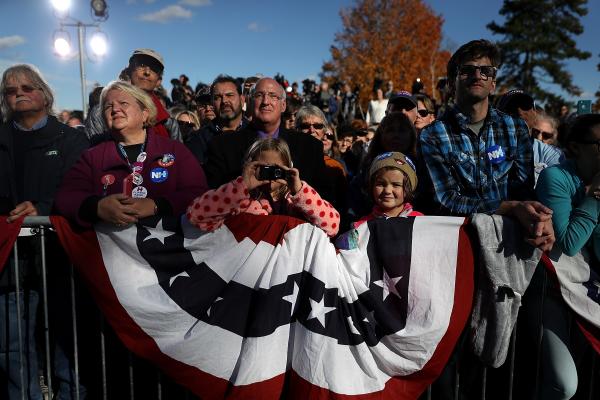The long and contentious race for the White House between Democrat Hillary Clinton and Republican Donald Trump made a dash toward its conclusion on Tuesday as millions of Americans cast ballots, with only hours left to vote.
Clinton led Trump, 44 percent to 39 percent, in the last Reuters/Ipsos national tracking poll before Election Day. A Reuters/Ipsos States of the Nation poll gave her a 90 percent chance of defeating Trump and becoming the first U.S. woman president.
Trump on Tuesday again raised the possibility of not accepting the election’s outcome, saying he had seen reports of voting irregularities. He gave few details and Reuters could not immediately verify the existence of such problems.
The campaign focused on the character of the candidates: Clinton, 69, a former U.S. secretary of state, and Trump, 70, a New York businessman. They often accused each other of being fundamentally unfit to lead the United States as it faces challenges such as an arduous economic recovery, Islamist militants and the rise of China.
Financial markets, betting exchanges and online trading platforms largely predicted a Clinton win, although Trump’s team says he can pull off an upset victory like the June “Brexit” vote to pull Britain out of the European Union.
Trump’s candidacy embodied an attack on America’s political establishment. Clinton represented safeguarding the political order.
A Clinton presidency would likely provide continuity from fellow Democrat Barack Obama’s eight years in the White House, although if Republicans retain control of at least one chamber in Congress more years of political gridlock in Washington could ensue.
A win for Trump could shake some of the basic building blocks of American foreign policy, such as the NATO alliance and free trade, and reverse some of Obama’s domestic achievements such as his 2010 healthcare law.
With more than 225 million people eligible to cast ballots, voting ends in some states at 7 p.m. Eastern Time (0000 GMT on Wednesday), with the first meaningful results due about an hour later. U.S. television networks called the winner of the 2008 and 2012 presidential elections at 11 p.m. (0400 GMT) or shortly after.
Victory in U.S. presidential elections is earned not by the popular vote, but by an Electoral College system that awards the White House on the basis of state-by-state wins, meaning a handful of states where the race is close assume an outsized importance.
Voters appeared to be worried about the nation’s direction and were seeking a “strong leader who can take the country back from the rich and powerful,” according to an early reading from the Reuters/Ipsos national Election Day poll.
The poll of more than 10,000 people who voted in the election showed a majority worried about their ability to get ahead, with little confidence in political parties or the media to improve their situation.
